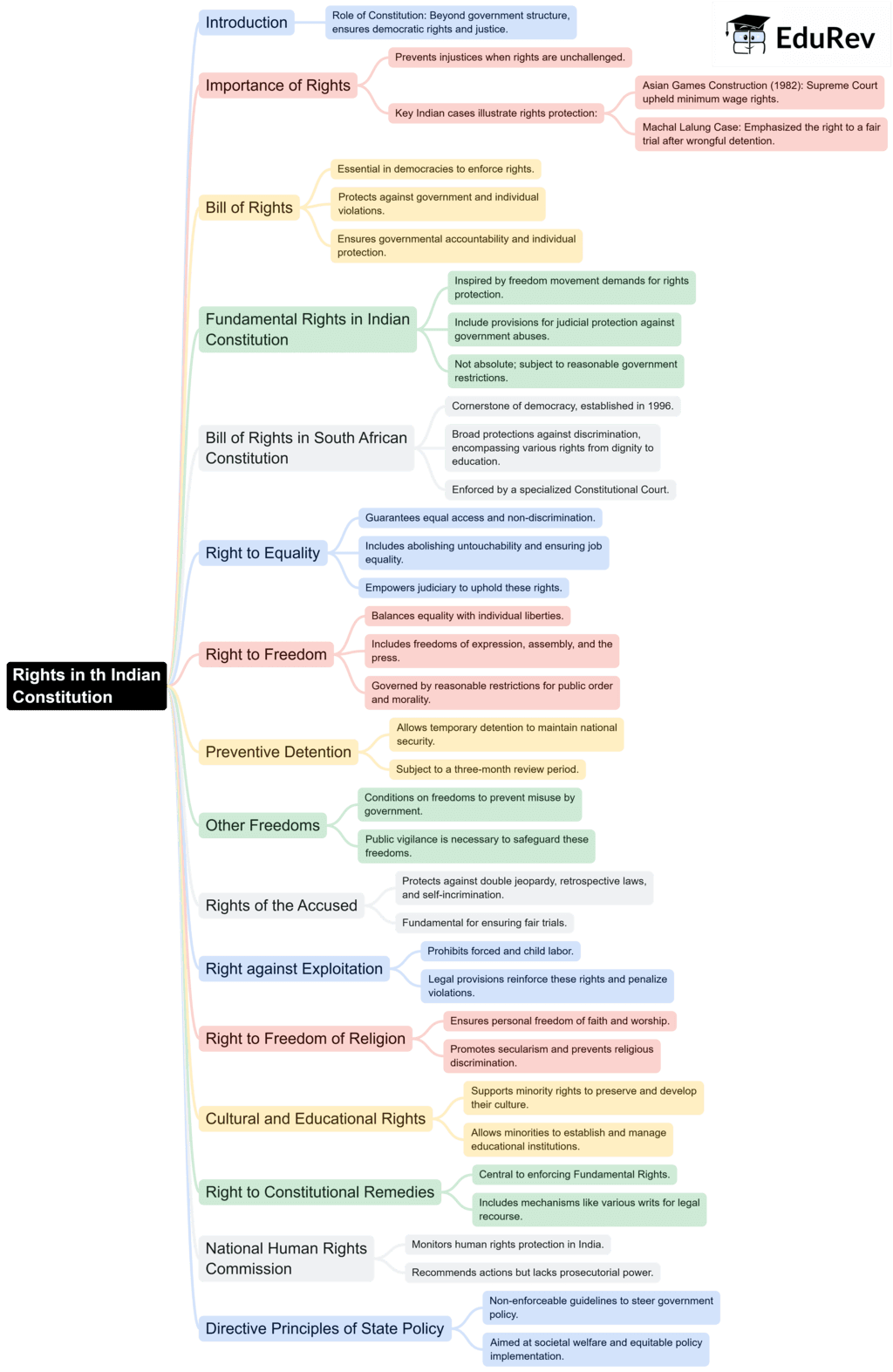Humanities/Arts Exam > Humanities/Arts Notes > Political Science Class 11 > Mind Map: Rights in the Indian Constitution
Mind Map: Rights in the Indian Constitution | Political Science Class 11 - Humanities/Arts PDF Download

The document Mind Map: Rights in the Indian Constitution | Political Science Class 11 - Humanities/Arts is a part of the Humanities/Arts Course Political Science Class 11.
All you need of Humanities/Arts at this link: Humanities/Arts
|
43 videos|278 docs|39 tests
|
FAQs on Mind Map: Rights in the Indian Constitution - Political Science Class 11 - Humanities/Arts
| 1. What are the fundamental rights guaranteed by the Indian Constitution? |  |
Ans. The Indian Constitution guarantees six fundamental rights to its citizens: Right to Equality (Articles 14-18), Right to Freedom (Articles 19-22), Right against Exploitation (Articles 23-24), Right to Freedom of Religion (Articles 25-28), Cultural and Educational Rights (Articles 29-30), and Right to Constitutional Remedies (Article 32). These rights are essential for the development of individuals and the protection of their dignity.
| 2. How do fundamental rights differ from legal rights in India? |  |
Ans. Fundamental rights are enshrined in the Constitution and provide basic human rights that cannot be taken away by ordinary laws. They are justiciable, meaning individuals can approach the courts for enforcement. Legal rights, on the other hand, are established by statutes or laws and can be amended or repealed by the legislature. While fundamental rights protect the individual's liberty and equality, legal rights may not necessarily have that same level of protection.
| 3. Can fundamental rights be suspended in India? If so, under what circumstances? |  |
Ans. Yes, fundamental rights can be suspended during a national emergency as declared under Article 352 of the Constitution. However, certain rights, such as the right to life and personal liberty (Article 21) and the right against discrimination (Article 15), cannot be suspended even during an emergency. The suspension of rights must be in accordance with the parameters set by the Constitution.
| 4. What is the significance of the Right to Constitutional Remedies (Article 32)? |  |
Ans. The Right to Constitutional Remedies is considered the cornerstone of the fundamental rights guaranteed by the Indian Constitution. It allows individuals to approach the Supreme Court directly for enforcement of their fundamental rights if they feel those rights have been violated. This provision acts as a safeguard against arbitrary actions by the state and ensures that citizens have access to justice.
| 5. How have the Supreme Court's interpretations affected the scope of fundamental rights in India? |  |
Ans. The Supreme Court of India has played a crucial role in expanding the scope of fundamental rights through its interpretations. For example, the Court has interpreted the Right to Life (Article 21) to include the right to a clean environment, the right to privacy, and the right to education. Such interpretations have significantly enhanced the protection of individual rights and have adapted to changing societal needs and values, ensuring that fundamental rights remain relevant in contemporary times.
Related Searches
















